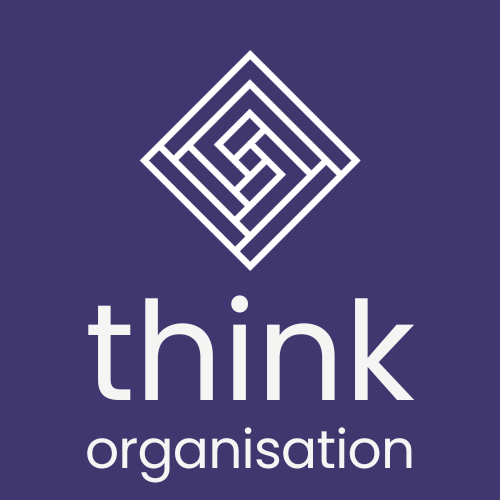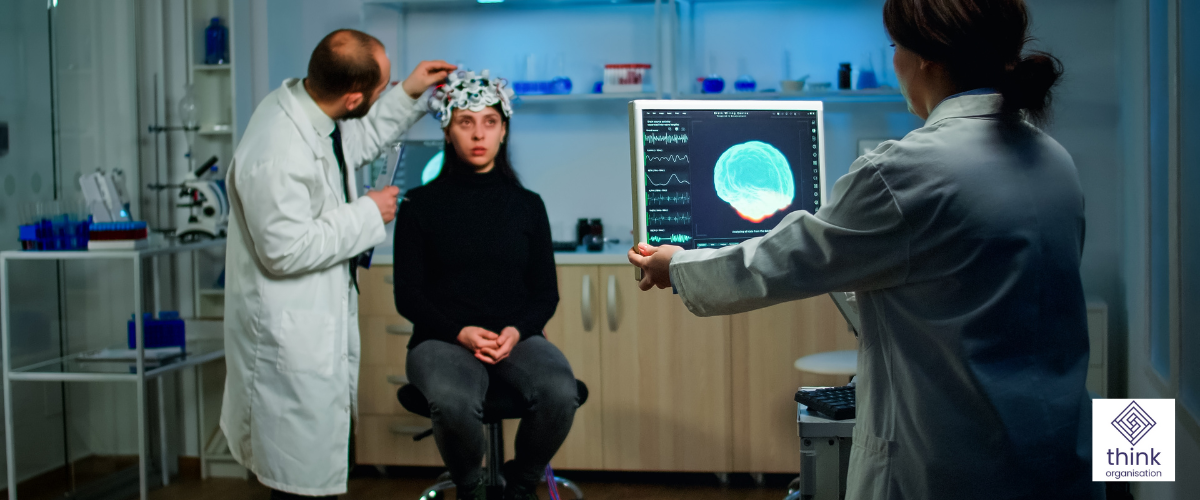Often the clients we work with focus on processes, policies, handbooks, and ways of working as if they are leading machines rather than people. Yet the human brain is very different from machines, or is it?
During the Industrial Revolution, this approach made sense; people managed machines. But today, 47% of work tasks are handled by humans, 22% by machines, and 30% require a combination of both (Statista, 2025).
So why isn’t there more focus on the power of the human brain?
The future of work is changing. More service-focused, the power of the human brain needs to be harnessed. Yet organisations often fail to embrace the opportunities of humans, AI, or anything related to the next technological revolution.
While humans add immense value to machines through creativity, critical thinking, emotional intelligence and adaptability, machines bring speed, efficiency, accuracy and precision, as well as the ability to perform dangerous or physically demanding tasks. The capacity of AI and computing systems to process vast amounts of data far surpasses the human brain in terms of scale, speed, and accuracy. Yet, why do we not take the same level of care of our people as we do with our machines?
Think about it.
We service machines, replace worn-out parts, and provide regular updates (often automatically like software updates). Yet, we struggle to adopt the same approach for humans.
Entire teams in organisations focus on preventive maintenance for machines, ensuring routine servicing to change filters, lubricate, and calibrate to prevent wear and tear.
So why don’t we do the same for humans?
After all, humans currently handle 47% of work tasks. Yet, in large organisations, there are on average just 0.79 HR personnel per 100 employees (Sesame HR, 2025). The ratio of managers to employees does not provide much more reassurance, with 43% of UK managers overseeing teams of 10 or more (People Management, 2022). So, how should we be looking after humans in the workplace?
1. Recognise The Human Brain
The human brain consumes most of a person’s energy, making hydration essential. Dehydration leads to brain fog, fatigue, and reduced concentration. Providing free tea and herbal infusions, cold water stations, and easy access to drinking water is a low-cost, high-benefit solution for businesses.
2. Encourage Regular Breaks
The Pomodoro Technique shows that focused work for 25–50 minutes, followed by a 5–10 minute break, improves productivity and quality. Encouraging people to step away from their desks, stretch, walk around, or get fresh air enhances focus and performance.
3. Promote High-Quality Social Interactions
With remote working, spontaneous conversations and team discussions often diminish. Encouraging regular interactions fosters collaboration, strengthens understanding, and supports mental well-being. Humans are social beings and need interactions with others.
4. Optimise the Work Environment
Natural light is vital for cognitive function, and reducing noise distractions helps people perform at their best. Providing flexible workspaces where employees can move to suit their needs enhances their ability to deliver quality work.
5. Empower People to Switch Off
While there is growing debate around enforcing ‘switch-off’ periods, this approach may increase stress rather than alleviate it. Simply blocking access to work doesn’t stop the human brain from thinking about it. Instead of rigid policies, organisations should empower employees to manage their workload in a way that suits both them and the business.
The brain is the most complex system we have discovered in the universe. Like a muscle, our brains need a workout. It needs to be used. But it also needs time to recharge, relax, and refresh as overuse can lead to muscle damage and injury. The same is true for the human brain.
So take control of your own brain health.
We must all avoid overworking, where long hours prevent proper rest and recovery. It benefits no-one in the long term. People who enjoy their jobs and have control over how they work experience better mental recovery than those who don’t. Yet, as businesses focus on processes and procedures, they often strip employees of the ability to trust their instincts and manage their work schedules and outputs.
Understanding what productivity looks like, and how the human brain can remain healthy at work is crucial. Ensuring proactivity, as opposed to reactivity, is key. By prioritising the well-being of the human brain, organisations can ensure that people (and not just machines) are supported to perform at their best.
To understand more please reach out.



